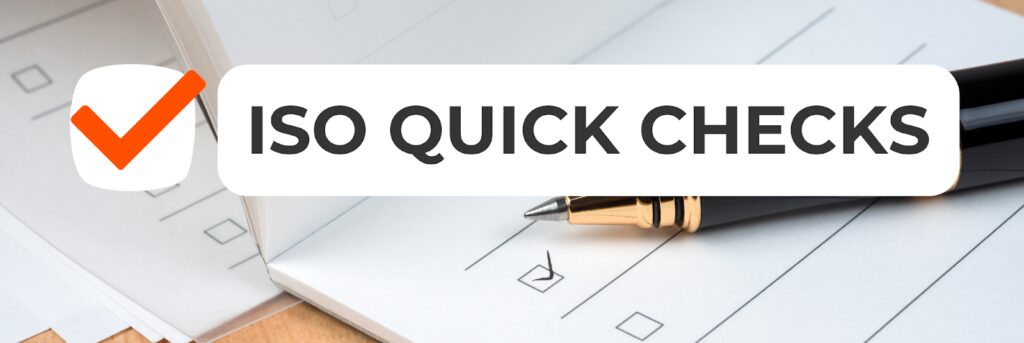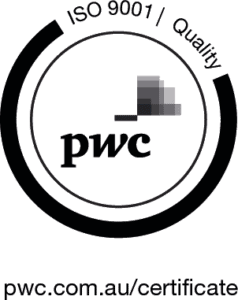ISO Template Kits: Unmasking the Hidden Costs and Risks for Your Business
Implementing an ISO Management System can significantly benefit your business by streamlining processes, reducing costs, and improving stakeholder confidence, just to name a few. To simplify the process, or perhaps to save on costs, many businesses turn to DIY ISO kits, which are pre-packaged sets of documents that can be purchased online and promise to get businesses ready for Certification. However, despite their apparent convenience, these ISO kits often come with hidden costs and risks that can undermine the effectiveness of your ISO implementation and Certification efforts.
In this blog, we’ll explore why ISO template kits may not be the best choice for your business, and highlight the advantages of seeking professional guidance from expert ISO Consultants.
What is a ‘DIY ISO Kit’?
A DIY ISO kit is a pre-packaged collection of documents that aim to assist organisations in developing their ISO Management System. These kits are often marketed as cost-effective solutions for businesses seeking to achieve Certification without the need for extensive consulting services. They typically include a range of templates for policies, procedures, forms, and checklists required by the ISO Management System Standards.
The appeal of DIY ISO kits lies in their perceived convenience. They offer ‘ready-made documents’ that claim to streamline the implementation process, saving time and effort. Additionally, these kits are often more affordable compared to hiring professional ISO Consultants, making them an attractive option for businesses operating on tight budgets.
However, it is crucial to understand the limitations and potential risks associated with these ISO kits, so let’s find out.
Why ISO Kits are a risk for your business
While they may provide a starting point for ISO implementation, they often fall short in delivering the desired outcomes for businesses. The concealed risks with buying these ISO template kits are:
In more detail, here are some reasons why relying solely on an ISO Kit can be problematic:
1. Lack of Tailoring
While these kits can serve as a convenient starting point, their generic nature can create challenges with integrating the system you’re intending to develop into your specific business processes, industry standards, and regulatory requirements. Without the necessary customisation, you risk adopting procedures and practices that may not be optimally suited to your organisation’s unique characteristics and operational needs.
This lack of integration can result in inefficiencies across various departments, as employees may struggle to adapt to standardised procedures that don’t fully resonate with their day-to-day tasks.
Moreover, failing to tailor your Management System to your organisation’s context can lead to confusion among employees, as they may find it challenging to relate the generic templates to their specific job roles and responsibilities. This can hinder the buy-in and commitment from the workforce, potentially leading to resistance in fully embracing the system. As a consequence, without fully customising your Management System, you risk a lack of alignment with your business objectives and the inability to fully optimise the benefits of the ISO Management System Standards.
Example case studies:
- One of our clients had purchased an ISO kit, and spent a significant amount of time and effort updating the documents to insert their company logo and details. When they were on the verge of completion, they realised that the templates were originally designed to UK business standards, rendering them unsuitable for their specific business requirements in Australia.
- Another client, who had previously purchased an online ISO kit, encountered an issue where the templates provided were originally tailored for a construction business, rather than the industry in which their own business operates. Consequently, numerous templates lacked relevance and applicability, as well as crucial documentation pertinent to the organisation’s industry.
2. Absence of Contextual Understanding
ISO kits typically lack the educational component necessary to comprehend the underlying principles and intent of the ISO Standards. Completing documentation is only one part of preparing for the Certification Audit; a comprehensive understanding of the relevant ISO Management System Standards and how they apply to your business is also required. Without a contextual understanding, organisations may struggle to implement the necessary processes effectively. This can result in non-conformances, missed opportunities for improvement, and a superficial approach to ISO implementation.
Additionally, businesses will often not know what to do after completing the development and implementation stage of the Certification Process. For example, in order to meet the requirements of the main ISO Management System Standards, businesses are also required to conduct an Internal Audit, and a Management Review. These are two major components of actually preparing for achieving Certification, and if missed, will result in failing the Certification Audit.
3. Insufficient Documentation Coverage

While ISO kits may provide a range of templates, they often lack the breadth and depth required for comprehensive documentation, leading to various drawbacks. ISO kits are often generic and may not fully cater to the specific requirements of a particular industry or business. This can leave gaps in critical areas that require specialised processes and documentation. Without addressing these gaps, organisations may struggle to effectively manage risks, meet industry regulations, or address specific challenges, thereby limiting their overall operational efficiency and competitiveness.
4. Limited Flexibility and Adaptability
Another critical drawback of ISO kits is their limited flexibility and adaptability to dynamic business environments. The business landscape is constantly evolving, and the ISO Standards are regularly updated to reflect new industry practices and requirements. Unfortunately, these off-the-shelf kits may not adequately account for these changes. As a result, organisations using these kits may face challenges when trying to adapt their Management System to keep up with their evolving business or comply with updated standards.
Each business has its unique operations, objectives, and processes, and a one-size-fits-all approach will not adequately address these specific needs. This lack of adaptability can hinder your organisation’s ability to derive long-term benefits, as you may struggle to effectively align your Management System with evolving industry practices and stay up-to-date with the latest ISO requirements. Ultimately, limited flexibility and adaptability can undermine the effectiveness and relevance of the Certification within an organisation, limiting its potential for growth and success.
Did you know?
Your Management System should be structured around your business processes, not to the ISO Standards clause structure.
Some ISO kits are built and structured according to each clause of the ISO Management System Standards. However, the requirements of the ISO Standards are designed to be applied to customised management systems. It’s crucial for your business to assess your unique circumstances, goals, and processes in order to customise your management system effectively. By aligning the management system with your specific objectives, culture, and industry requirements, you can optimise your operations and achieve much more than an ISO Certification.
5. Limited support and expertise
While these kits provide templates and basic instructions, they often lack comprehensive support from experienced professionals who possess deep knowledge of ISO Standards and implementation. ISO Standards encompass complex requirements, documentation, and processes that require proper interpretation and application. Without expert guidance, organisations may struggle to understand and effectively implement these requirements. ISO kits may not cater to specific organisational needs, leaving organisations with unanswered questions and difficulties in customising the templates to suit their unique operations.
_________________________________________________________________________
Some ISO templates and kits aren’t all bad, but it’s important to emphasise that they aren’t an off-the-shelf easy solution, and should only be used as a starting point. If you are not hiring a consultant, these kits will require a full-time experienced employee, or a team of trained in-house personnel, to be able to understand the ISO Standard(s) requirements, and then be able to thoroughly review, adapt, and implement these templates properly. Depending on the size and complexity of the organisation, this is a process that could easily take anywhere from 6-18 months, and still have its associated risks.
Getting help from professional ISO Management System Consultants

While DIY ISO kits may seem like a convenient and cost-effective solution, they come with inherent risks and limitations, as mentioned above. To maximise the benefits of ISO Certification, and ensure Certification success, the best option is to seek the expertise of professional ISO Management System Consultants.
Expert ISO Consultants bring valuable knowledge and expertise to the table, developing a customised Management System that aligns with your organisation’s unique requirements. They can tailor the implementation process to address these specific needs, ensuring that your chosen ISO Management System Standards are seamlessly implemented and integrated into your organisation’s operational processes.
Additionally, the ongoing support and guidance provided during and after the Certification Readiness Process is a major benefit of using an ISO Consultant. Unlike ISO Kits or self-guided approaches, consultants are available to assist you at every stage, from initial planning to post-certification management.
Our team of consultants are experts in developing effective management systems, and are passionate about helping businesses achieve, maintain and improve their Management Systems and Certifications. Since we started in 2007, every business that has followed our proven process has achieved Certification first time, and, as a result, we offer a Certification Readiness Guarantee – by following our proven planning process and advice, supported by our extensive industry experience, we can get you certified first time – Guaranteed!
Don’t waste time – do it right the first time! Call us now on 1300 614 007, email us, or book your online FREE Strategy Session to discuss a tailored solution for your business.
About the author
Brooke is the Marketing Coordinator and Content Developer at ISO Certification Experts and ICExperts Academy. She is responsible for all of the communications with our audience, including well-researched content across our website, blogs, social media channels, and email marketing. Her passion revolves around simplifying complex topics, helping prospective clients to make well-informed decisions with ease.
All information on this blog site is for informational purposes only. As this information is based on our professional experience, opinion, and knowledge, we make no representations as to the suitability of this information for your individual business circumstances. Especiality Pty Ltd trading as ISO Certification Experts and all related businesses and brands will not be liable for any errors, omissions, legal disputes or any damage arising from its display or use. All information is provided as is, with no warranties and confers no rights.
We will not be responsible for any material that is found at the end of links that we may post on this blog site. The advice, ideas, and strategies should never be used without first assessing your own personal business situation or seeking professional and/or legal advice. Information may also change from time to time to suit industry and business needs, requirements and trends.

















